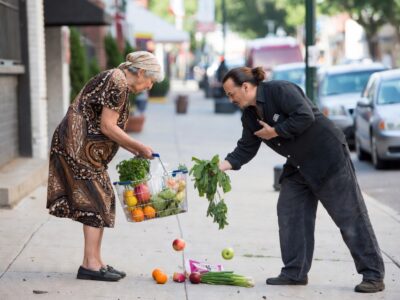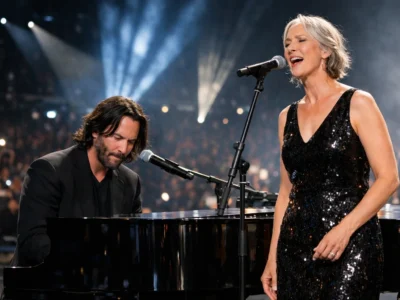As the sun sets on Cousins Beach for the final time in The Summer I Turned Pretty Season 3, Episode 11 delivers a finale that doesn’t just wrap up loose ends—it redefines them. Titled “Infinite Summer,” this 53-minute powerhouse concludes Jenny Han’s beloved trilogy with a blend of heartbreak, hope, and hard-won self-discovery. After three seasons of sun-soaked longing and the infamous Fisher brothers love triangle, Belly Conklin (Lola Tung) faces her ultimate crossroads. No longer torn solely between Conrad (Christopher Briney) and Jeremiah (Gavin Casalegno), her decision pivots to a deeper question: Can she choose love without losing herself? In a series finale that burns brighter than a Cousins bonfire, the answer unfolds in ways that honor the books while forging a fresh path for its heroine.
To understand the ignition of this endgame, we must rewind to the emotional wreckage of prior episodes. Season 3, premiering on July 16, 2025, on Prime Video, picks up after Belly’s disastrous engagement to Jeremiah crumbles under the weight of secrets and unspoken truths. The wedding bells that rang in Episode 8’s rehearsal dinner silence into chaos when Jeremiah’s infidelity in Cabo surfaces, echoing the betrayal that shattered their bond in We’ll Always Have Summer. Conrad, ever the brooding guardian of Belly’s heart, steps back to California, giving his brother space while grappling with his own unresolved feelings. Belly, fleeing the debris, jets off to Paris for her junior year abroad—a show-specific twist on the book’s Spain sojourn—seeking independence amid the City of Light’s romance.
Episode 10, “Last Year,” sets the stage for the finale’s blaze. Belly thrives (or tries to) in Paris, forming a tentative connection with Benito (a new character introduced as a charming local artist, played by newcomer Diego Boneta). She kisses him under New Year’s fireworks, secures a permanent apartment, and even responds to one of Conrad’s heartfelt letters, including her address—a quiet olive branch after months of silence. Back home, the Fisher brothers reconcile on the anniversary of their mother Susannah’s death, a poignant moment that heals their rift. Jeremiah, maturing beyond his earlier pettiness, urges Conrad to pursue Belly: “Life’s too short not to spend it with the person you love.” Conrad books a flight to Paris, arriving just as Belly turns 22. The episode fades on her in a salon, scissors poised for a symbolic haircut—a fresh start—unaware of the storm (or reunion) heading her way.
Episode 11 opens with that haircut, Belly emerging transformed: shorter hair, a bolder gaze, ready for whatever the summer holds. But Paris’s allure cracks when Conrad appears at her door, polar bear stuffy in hand—the same one from her childhood room, a nod to their shared history. Their reunion is electric yet tentative. Over croissants and confessions, Conrad admits the letters were his way of holding on without possessing: “I didn’t want to pull you back. I just needed you to know I’m still here.” Belly, vulnerable after her failed engagement and fleeting fling with Benito, grapples with the pull of first love. Benito, sensing the chemistry, bows out gracefully earlier in the episode, telling Belly, “Love isn’t a competition—it’s a choice.” His exit shifts the narrative; the triangle dissolves not through rivalry, but resolution. Jeremiah, via a heartfelt video call from Cousins, releases her too: “You were my summer, Belly. But you’re more than that now.”
Yet, the true ignition comes mid-episode with a gut-wrenching call from home. Belly’s father, John Conklin (Colin Ferguson), suffers a heart attack—foreshadowed by his “heartburn” in earlier seasons, a theory fans buzzed about online. Rushing back to the States, Belly lands in a family whirlwind. Laurel (Jackie Hoffman) and John’s budding romance, a bright spot since Season 2, faces its test as he recovers in the hospital. This crisis forces Belly to confront not just the Fishers, but her own identity. Flashbacks interweave: young Belly idolizing Susannah, teen Belly torn between brothers, college Belly chasing freedom in Paris. In a raw hospital scene, she tells her mom, “I thought choosing between Conrad and Jeremiah was the hardest part. But it’s choosing me—without them defining who I am.”
The endgame ignites here. Conrad follows her home, offering support without expectation. Jeremiah, now fully supportive, joins them at the beach house for a final gathering. No dramatic showdown; instead, a quiet bonfire where truths burn away illusions. Belly reveals she’s been writing her own letters—not just to Conrad, but to herself—journaling her dreams beyond romance: med school aspirations, travels untethered to Cousins. Echoing the books’ epistolary close, she reads one aloud: “Love isn’t the end of the story. It’s the spark that lights your own path.” In a divergence from We’ll Always Have Summer, where Belly chooses Conrad post-graduation and they wed in a flash-forward, the show opts for ambiguity laced with hope. She kisses Conrad under the stars—their first since Season 1—but pulls back, whispering, “This time, it’s on my terms.” The brothers share a nod of brotherhood restored, Jeremiah hinting at a future with Gigi (Saxe’s sister, a subtle thread from earlier episodes).
Belly’s choice crystallizes in the finale’s montage: her returning to Paris for med school interviews, Conrad visiting on breaks, Jeremiah thriving at architecture firm in Boston. No wedding bells yet; instead, a voiceover from Belly: “That summer, I turned pretty—not for them, but for me.” It’s a empowering pivot, addressing fan debates on Reddit about whether she’d “choose herself” over the triangle. Showrunner Jenny Han, in interviews, teased changes to reflect modern audiences: “The books were about first love, but the series is about lasting self-love.” This isn’t a cop-out; it’s evolution. Belly, once defined by her “pretty” summer, emerges whole.
What makes this finale burn brighter? The cinematography, for one. Director Jenny Han (helming her first episode) captures Paris’s golden hour glow contrasting Cousins’ stormy skies, symbolizing Belly’s internal shift. The soundtrack, featuring Taylor Swift’s “This Love (Taylor’s Version)”—pre-released for the show—pulses through key scenes, tying back to Belly’s Swiftie roots. Performances elevate it: Tung’s nuanced portrayal of Belly’s growth from wide-eyed girl to self-assured woman steals every frame. Briney and Casalegno, once pitted as rivals, shine in reconciliation, humanizing the brothers beyond the triangle.
Critics and fans alike hail it as a triumphant close. On X (formerly Twitter), #TSITPFinale trends with posts like “Belly choosing herself > any endgame ship” and “Infinite Summer indeed—burning bright!” While book purists mourn the delayed Conrad wedding, the adaptation’s focus on agency resonates in 2025’s post-#MeToo landscape. The Summer I Turned Pretty began as a nostalgic YA romance; it ends as a manifesto for young women navigating love’s flames without getting burned.
In the end, Episode 11 doesn’t douse the fire—it fans it. Belly’s journey reminds us: The brightest summers are the ones we claim for ourselves. As the credits roll over a Cousins sunset, one question lingers: What’s next for our infinite girl? Whatever it is, she’ll face it pretty, poised, and unapologetically herself.

